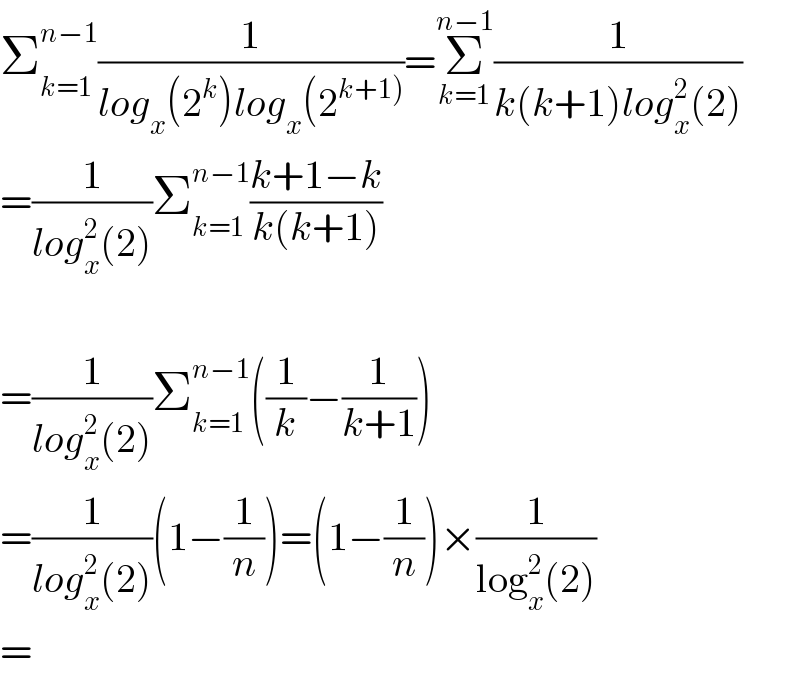
Question and Answers Forum
Question Number 70834 by Maclaurin Stickker last updated on 08/Oct/19

Answered by mind is power last updated on 08/Oct/19

| ||
Question and Answers Forum | ||
Question Number 70834 by Maclaurin Stickker last updated on 08/Oct/19 | ||
 | ||
Answered by mind is power last updated on 08/Oct/19 | ||
 | ||
| ||